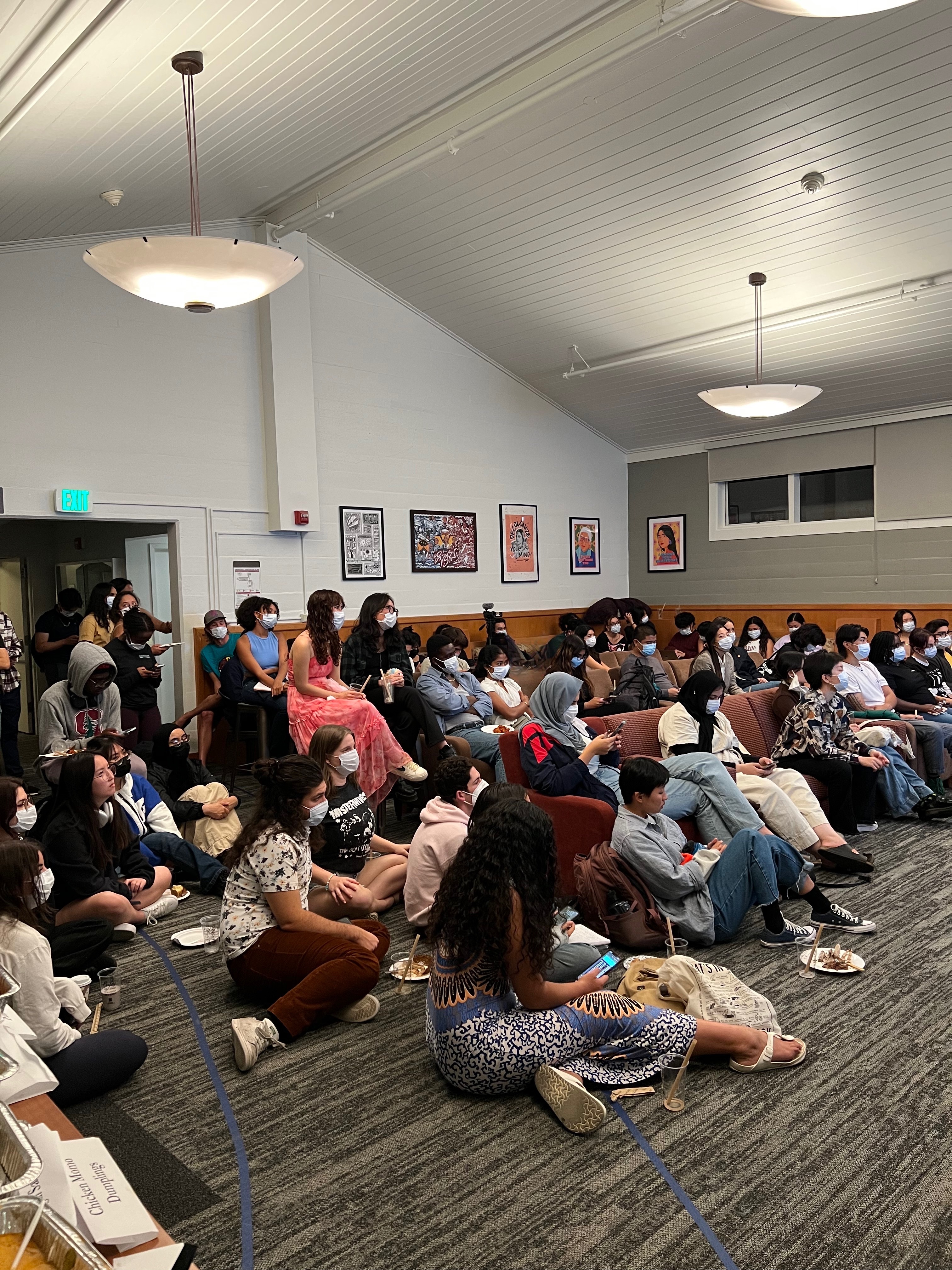Around 70 students gathered in Okada lounge on Thursday evening for the launch of the Stanford Asian American Action Committee’s (SAAAC) “No to APEC” campaign — an effort to fight against what they described as harmful neoliberal policies promoted by the Asia-Pacific Economic Cooperation (APEC).
In mid-November, San Francisco will host 21 member states of APEC — an economic forum seeking to promote free trade and economic growth in the region — at the organization’s annual summit. According to the APEC website, the members “aim to create greater prosperity for the people of the region by promoting balanced, inclusive, sustainable, innovative and secure growth and by accelerating regional economic integration.”
Ahead of the conference, SAAAC has joined a coalition of over 100 organizations across the country in protesting the conference, arguing that APEC policies harm workers across the globe.
“Our experiences as Asian Americans in the United States is very closely tied to transnational experiences of, for example, migrants and the families and communities that we come from, and we just feel like it’s really important to oppose things like APEC which serve to worsen the living conditions for them,” said SAAAC president Amy Zhai ’25.
To kick off their campaign, SAAAC welcomed a speaker from the International Migrants Alliance (IMA), an alliance of organizations supporting migrants, refugees and displaced people across the globe. Organizers with the Malaya Movement SF, the San Francisco chapter of Malaya Movement, an organization committed to democracy, human rights and national sovereignty in the Philippines, also spoke at their Thursday teach-in.
Terry Valen, an organizer with IMA and the director of San Francisco’s Filipino Community Center, shared a presentation contextualizing the “No to APEC” campaign. He began the presentation by explaining his view on the concept of neoliberalism, which he says is central to APEC.
“Neoliberalism is the set of ideas, or a doctrine, that holds that free market capitalism is the best way of ensuring prosperity and freedom for all,” Valen said.
APEC’s commitment to neoliberalism, according to Valen, puts profits over people, leading to rising global wealth gaps and ecological collapse. He cited examples of what he says are the harms of neoliberalism, like the inability of Filipino farmers to profitably grow and sell their own rice faced with imported rice from Thailand.
“A lot of these free trade deals are negotiated behind closed doors and don’t have the input and access of workers, migrants, indigenous people, women and others,” Valen said.
At the teach-in, Caeli Benson, an organizer with Malaya Movement SF, condemned the city of San Francisco for spending money to welcome leaders like Filipino president Ferdinand “Bongbong” Marcos Jr.
“He is a dictator and the son of a dictator, and he has continued the bloody legacy of Marshal Law that his father started in the 70s,” Benson said, speaking of Marcos. Benson also added that Marcos has led a campaign of historical revisionism and disinformation.
“We just see that APEC has never historically supported Filipino workers and Filipino people,” Benson said.
Benson especially finds this allocation of funds concerning at a time when proposed budget cuts threaten childcare programs and at least one food bank in San Francisco.
Rachel Lucero, another organizer with Malaya Movement SF, expressed her concerns about the elderly residents of the South of Market neighborhood, where the conference will take place. These residents will face disruptions to public transportation, potentially decreasing accessibility to grocery stores and hospitals, Lucero said.
The “No to APEC” campaign is not one exclusively for Asian American students, Zhai said.
“These are all things that have tangibly touched our lives in some way or another, and I feel like it’s our responsibility to say something against it, especially at an institution like Stanford where it can be kind of taken for granted that things like APEC, things like neoliberalism, are welcomed on this campus,” Zhai said.
The Daily has reached out to APEC organizers for comment.
